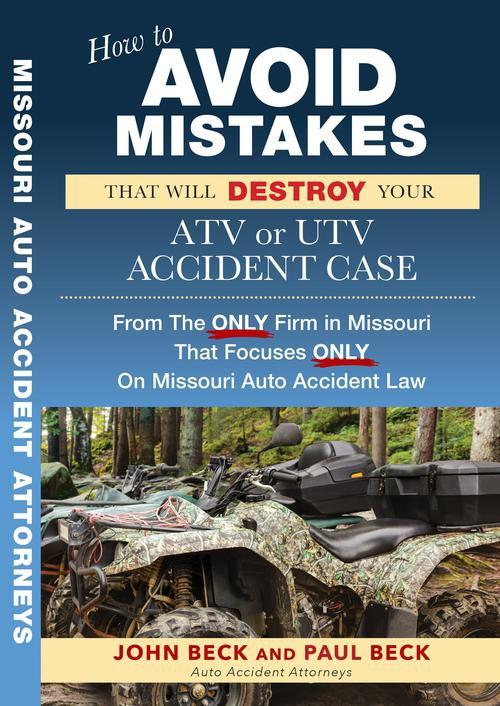For decades, Missouri enforced a universal helmet law that required all motorcycle riders to wear helmets. However, in 2020, this law was amended, allowing riders aged 26 and older to go without a helmet if they have valid health insurance with at least $50,000 in medical benefits for injuries sustained in a crash. While this change grants more freedom to motorcyclists, it has also contributed to a troubling rise in fatalities.
Understanding motorcycle helmet laws in Missouri is crucial for your safety and legal rights. Riding without a helmet increases the risk of severe injury or death, and it may also affect your ability to recover compensation if you’re involved in an accident.
According to the Missouri Department of Transportation (MoDOT), 2023 saw the highest number of motorcycle fatalities ever recorded, with 175 deaths—a 47% increase since the repeal of the universal helmet law in 2020 . The connection between the law change and the rise in fatalities is clear, making it even more important to fully understand the risks of riding without proper protection.
Missouri’s revised helmet law, RSMo. 302.026, emphasizes that motorcyclists under the age of 26 and those without adequate insurance must still wear helmets. The impact of these legal changes cannot be understated—public safety experts warn that helmet use can dramatically reduce the severity of injuries in a crash, as nearly half of the motorcyclists killed in recent years were not wearing helmets at the time of their accidents . For more information on the latest motorcycle accident statistics, you can visit MoDOT’s report on 2023 fatalities .
If you’ve been injured in a motorcycle accident in Missouri, our skilled Missouri motorcycle accident lawyers are here to assist you in securing compensation for your injuries and losses. Reach out today for a free consultation.
Missouri’s Helmet Laws and Requirements For Motorcyclists in 2024
In 1967, Missouri enacted a universal helmet law, which required all motorcyclists and passengers to wear helmets on state highways. However, on August 28, 2020, the law was amended, relaxing the requirements for certain riders.
According to RSMo. 302.020, the following individuals are still required to wear protective headgear at all times while on a motorcycle or motor-tricycle:
- Riders under the age of 26.
- Anyone operating a motorcycle with only an instruction permit, regardless of age.
Missouri’s revised helmet law also defines specific characteristics that motorcycle helmets must meet to provide adequate protection. Helmets should weigh approximately three pounds, have a foam liner at least one inch thick, include sturdy chin straps, and have a DOT label, indicating compliance with federal safety standards. These requirements ensure that riders use helmets designed to reduce the risk of severe injury in a crash.
RSMo. 302.026 stipulates that riders and passengers aged 26 and older may forgo wearing a helmet if they have valid health insurance. The insurance must include at least $50,000 in medical benefits specifically for injuries sustained in a motorcycle accident. Riders must carry proof of this insurance while on the road.
It’s important to note that Missouri’s helmet law only applies to motorcycles and motor-tricycles, as defined by RSMo. 301.010. This law excludes motorized bicycles and all-terrain vehicles, which are not subject to helmet requirements.
Despite the relaxation of the law for older riders, wearing a helmet remains one of the best ways to protect yourself in a motorcycle accident. Since the 2020 amendment, motorcycle fatalities have risen sharply across the state. If you’ve been injured in a motorcycle crash, consulting with a motorcycle accident lawyer at Beck & Beck Missouri Car Accident Lawyers is crucial to understanding your legal options and rights.
I’m Under 25, Can I Get a Ticket For Not Wearing a Helmet on My Motorcycle?
Yes, if you’re under 26 and riding a motorcycle in Missouri without a helmet, you can receive a ticket, but only under specific circumstances. Missouri’s motorcycle helmet laws require all riders under 26 to wear protective headgear at all times while on a motorcycle or motor-tricycle. However, Missouri has adopted a secondary enforcement approach to helmet law violations.
This means that law enforcement officers cannot pull you over solely for not wearing a helmet. Unlike primary enforcement states, where police can stop motorcyclists for helmet violations alone, in Missouri, an officer must first observe another violation—such as speeding or failing to signal—before issuing a citation for not wearing a helmet.
If you’re under 26 and pulled over for another offense, the officer can then check your compliance with the helmet law and issue a ticket if necessary.
The fine for violating Missouri’s helmet law is relatively low at $25, but the risks associated with not wearing a helmet can be far more costly. Studies show that helmets significantly reduce the risk of serious injury or death in motorcycle accidents.
The Dangers of Not Wearing a Helmet While Riding a Motorcycle in Missouri
Riding a motorcycle offers a unique sense of freedom and adventure, but that feeling can come with significant risks, especially if you’re not wearing a helmet. While Missouri’s motorcycle helmet laws allow riders 26 and older to forgo a helmet under certain conditions, the dangers of riding without one are severe.
A helmet can mean the difference between walking away from an accident and facing catastrophic or even fatal injuries. Below, we explore the risks associated with riding a motorcycle without a helmet in Missouri.
The Numbers Don’t Lie: Helmet Efficacy
According to the National Highway Traffic Safety Administration (NHTSA), helmets play a critical role in saving lives during motorcycle accidents. Consider the following:
- Helmets are 37% effective in preventing fatalities among motorcycle drivers and 41% effective for passengers.
- In 2016, 41% of all motorcycle fatalities involved riders not wearing helmets. These numbers are even higher in certain regions.
- NHTSA data suggests that if all motorcyclists wore helmets, an additional 800 lives could be saved annually.
Without a helmet, you are significantly more likely to sustain severe head injuries, such as traumatic brain injuries (TBI), concussions, and skull fractures. The financial, physical, and emotional toll of these injuries can be overwhelming.
The Importance of Helmet Usage
While the updated motorcycle helmet laws in Missouri provide an option for some riders to go without a helmet, wearing one is still one of the most important safety precautions a motorcyclist can take. Here are some of the top reasons why wearing a helmet is crucial:
- Head Injury Prevention: Helmets act as a shield, reducing the risk of serious head trauma, such as traumatic brain injuries and skull fractures, in the event of a crash.
- Impact Protection: Helmets are designed to absorb and distribute the force of an impact, minimizing the severity of head and facial injuries.
- Road Debris and Weather Protection: Helmets also protect riders from flying debris, insects, and adverse weather conditions, improving visibility and comfort while riding.
- Increased Visibility: Many helmets come with reflective features or bright colors, making riders more visible to other motorists, especially during low-light conditions.
Ignoring the risks of riding without a helmet can lead to life-altering injuries or even death. If you’ve been involved in an accident and were not wearing a helmet, it’s important to consult a motorcycle accident lawyer to understand your rights and potential legal options.
How To Choose The Best Motorcycle Helmet
Choosing the right motorcycle helmet can mean the difference between life and death. Whether you’re new to riding or an experienced motorcyclist, having a properly fitted, high-quality helmet is crucial for protecting yourself on the road.
In Missouri, although certain riders may not be required to wear one under motorcycle helmet laws in Missouri, experts strongly recommend that all riders wear helmets to significantly reduce the risk of injury in the event of an accident.
Safety Tips for Choosing and Wearing a Helmet
When selecting a helmet, keep the following safety tips in mind:
- Replace after a crash: Even if your helmet looks undamaged after an accident, it may have sustained internal damage. It’s important to replace it to ensure continued protection.
- Choose the right fit: A properly fitting helmet should be snug, without sliding around your head. Make sure it stays in place when you move your head from side to side.
- Use the chin strap: The chin strap is essential for keeping the helmet securely in place during a ride, ensuring maximum protection.
- Opt for reflective gear: For riding at night or in low visibility conditions, helmets with lights or reflective elements can help improve your visibility to other motorists.
- Wear it properly: Always place the helmet flat on your head, ensuring it doesn’t tilt in any direction.
Helmet Safety Standards
Motorcycle helmets in the U.S. are required to meet the Department of Transportation (DOT) safety standards, as specified by the National Highway Traffic Safety Administration (NHTSA). These standards ensure that helmets provide maximum protection during an accident by absorbing impact energy, securing the strap design, and maintaining a sufficient field of vision. Helmets that meet these criteria are labeled with a DOT sticker, which is essential when purchasing a helmet.
The NHTSA highly recommends using a DOT-approved helmet to minimize the risk of head and brain injuries during a crash. This type of helmet absorbs the majority of the impact’s energy and can significantly reduce the risk of death or long-term injuries.
How Will My Motorcycle Accident Claim Be Affected if I Wasn’t Wearing a Helmet?
Wearing a helmet not only protects your health, but it can also strengthen your injury claim if you’re involved in a motorcycle accident in Missouri. Under motorcycle helmet laws in Missouri, riders over 26 with the appropriate insurance coverage are not legally required to wear helmets. However, failing to wear one can still impact the outcome of your personal injury case.
Missouri follows a comparative negligence rule, which means that if you’re partially responsible for your injuries, your compensation may be reduced by the percentage of fault assigned to you. For example, if you suffer $100,000 in damages from a motorcycle accident and the jury determines that you were 20% at fault due to not wearing a helmet, your compensation would be reduced by that 20%, leaving you with $80,000.
Insurance companies often use the absence of a helmet to argue that a rider contributed to the severity of their injuries, potentially lowering the compensation payout. Even though motorcycle helmet laws in Missouri don’t require all riders to wear helmets, insurers might still claim that your failure to wear one makes you partially responsible for your injuries.
Regardless of whether you were wearing a helmet, you are still entitled to pursue compensation if another motorist caused your accident. If an insurance company tries to reduce your settlement based on helmet use, contacting a skilled Missouri motorcycle accident lawyer is essential.
At Beck & Beck Missouri Car Accident Lawyers, our experienced team knows how to combat these tactics and fight for the compensation you deserve. Our skilled legal team can help ensure you receive the maximum recovery allowed by law, regardless of whether you were wearing a helmet at the time of the accident.
Skilled Missouri Motorcycle Accident Lawyers
At Beck & Beck Missouri Car Accident Lawyers, we are dedicated to providing exceptional legal representation to motorcycle accident victims across Missouri. With our extensive experience and deep understanding of Missouri motorcycle laws, we are committed to securing the compensation you deserve.
Whether it’s navigating the complexities of insurance claims or fighting for your rights in court, our team will stand by your side every step of the way. Trust us to be the Missouri motorcycle accident lawyer you can rely on for the justice and financial recovery you need to move forward.
Some of the locations our legal team serves includes St. Louis, Florissant, Springfield, Kansas City, Kirksville, Cape Giradeau, and more.







